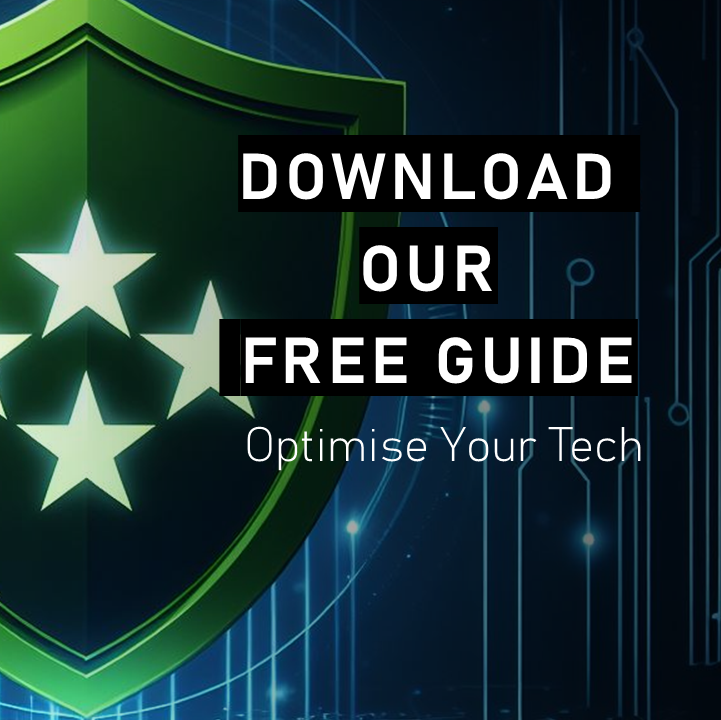Robust IT solutions are paramount for ensuring patient data security, streamlining operations, and enhancing overall care quality. This blog post explores the latest advancements in healthcare IT solutions, providing valuable insights for medical practitioners, administrators, and IT professionals in the healthcare sector.
The Crucial Role of Professional Technical Architects
Before delving into specific IT solutions, it’s essential to emphasise the critical role of professional Technical Architects in designing comprehensive healthcare IT systems. Rather than cobbling together a random assortment of products and subscriptions, a skilled architect ensures seamless integration, optimal performance, and robust security. This holistic approach is fundamental to creating a cohesive, efficient, and secure IT infrastructure that truly enhances healthcare delivery and maintains cybersecurity posture at the highest levels.
1. Data Security & Compliance: Safeguarding Patient Information
Advanced security tools are at the forefront of data protection in healthcare. These solutions assist organisations in adhering to stringent regulations such as NIS2, GDPR and HIPAA. By providing sophisticated data protection capabilities, these tools ensure that patient data is handled with the utmost care and security, allowing healthcare providers to focus on delivering exceptional care without compromising on compliance and preparing for AI private solutions.
2. Identity and Access Management: Fortifying Your Digital Perimeter
Robust identity management solutions serve as vigilant gatekeepers for healthcare systems. By implementing multi-factor authentication (MFA) and conditional access policies, these systems ensure that only authorised personnel can access sensitive patient data. This layered approach to security significantly reduces the risk of unauthorised access, protecting both patient privacy and organisational integrity.
3. Advanced Threat Protection: Shielding Against Cyber Threats
In an era where cyber threats are increasingly sophisticated, comprehensive threat protection is essential. Modern solutions offer formidable defence against ransomware, phishing attempts, and other malicious activities that could potentially disrupt healthcare operations or compromise patient data. By continuously evolving their threat detection capabilities, these tools ensure that healthcare organisations stay one step ahead of cybercriminals.
4. Secure Communication & Collaboration: Bridging Gaps in Healthcare
Secure communication platforms have revolutionised interaction in healthcare settings. Offering encrypted, compliant channels, these tools enable secure video consultations, seamless file sharing, and efficient collaboration among healthcare professionals. This not only enhances patient care but also streamlines interdepartmental communication, fostering a more connected and efficient healthcare ecosystem and reducing technical debt.
5. Zero Trust Security Model: Trust Nothing, Verify Everything
The implementation of a Zero Trust approach marks a paradigm shift in healthcare security. This model operates on the principle of “never trust, always verify,” ensuring that all access requests are continuously authenticated, regardless of their origin. This approach is particularly crucial in healthcare, where the stakes of a security breach are exceptionally high.
6. Endpoint Management: Securing the Front Lines
Comprehensive endpoint management solutions allow healthcare organisations to secure, manage and update seamlessly a diverse array of devices, from mobile phones to laptops. This ensures that all endpoints comply with organisational security policies and data protection standards, mitigating risks associated with device loss or theft and reducing support requests.
7. Data Loss Prevention (DLP): Guarding Against Inadvertent Breaches
DLP tools play a crucial role in preventing unintentional sharing or leakage of sensitive healthcare data. By monitoring and controlling data transfers across emails and documents, these tools add an extra layer of security, ensuring that confidential information remains within the bounds of the organisation and eliminating shadow IT.
8. Automated Compliance Auditing: Staying Ahead of Regulations
Automated compliance management tools simplify the complex task of maintaining regulatory compliance and reporting. By providing automated assessments and actionable recommendations, they enable healthcare organisations to stay abreast of evolving compliance requirements, ensuring continuous adherence to industry regulations without spending weeks on analysing dashboards.
9. AI-Driven Insights: Enhancing Decision-Making in Healthcare
The integration of private AI tools is transforming data analysis in healthcare. These AI-driven insights enable more efficient analysis of patient data, supporting healthcare professionals in diagnosis, treatment planning, and administrative decision-making, ultimately leading to improved patient outcomes.
10. Cloud-Based Storage & Backup: Ensuring Data Availability and Security
Secure, scalable cloud storage solutions tailored for healthcare needs ensure that critical data is always accessible while adhering to strict compliance and encryption standards, providing peace of mind for healthcare providers.
11. Disaster Recovery & Business Continuity: Preparing for the Unexpected
Robust disaster recovery and business continuity services are invaluable in helping healthcare providers swiftly recover from cyberattacks or system failures, ensuring minimal disruption to patient care and organisational operations.
12. Encrypted Email Communication: Safeguarding Sensitive Correspondence
End-to-end encryption for email communication ensures that sensitive patient information shared between providers remains confidential and secure. This feature is crucial in maintaining patient privacy and complying with data protection regulations.
13. Automated Threat Detection & Response: Real-Time Security Vigilance
Comprehensive Security Information and Event Management (SIEM) solutions enable healthcare organisations to detect and respond to security threats in real-time. This proactive approach to security is essential in the fast-paced healthcare environment where every second counts.
14. Role-Based Access Control (RBAC): Precision in Data Access
The implementation of RBAC allows healthcare organisations to finely tune access permissions. By ensuring employees only have access to data and systems necessary for their roles, RBAC minimises the risk of insider threats and unauthorised data access.
15. Telemedicine & Remote Work Security: Adapting to New Care Models
As telemedicine becomes increasingly prevalent, secure solutions provide the necessary tools to conduct remote consultations, manage patient records, and collaborate with colleagues remotely. This ensures that the shift towards digital healthcare doesn’t come at the cost of data security or compliance.
Why is it important?
The landscape of IT solutions in healthcare is vast and complex. By leveraging these advanced technologies and entrusting their implementation to skilled Technical Architects, healthcare organisations can enhance patient care, streamline operations, and maintain the highest standards of data security and compliance. As we move forward, the integration of these solutions will undoubtedly play a pivotal role in shaping the future of healthcare delivery, ensuring better outcomes for patients and providers alike.









